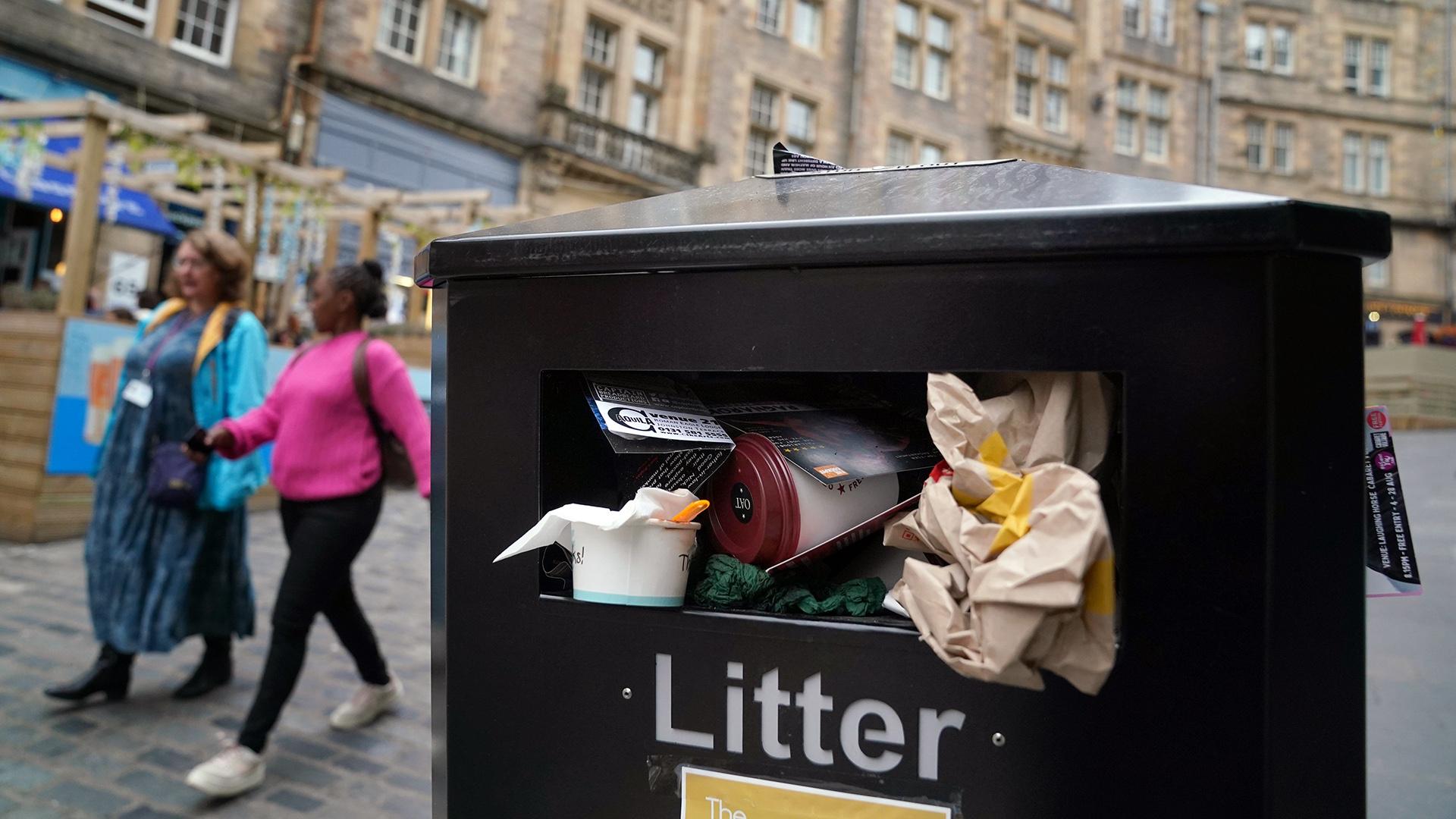Bin strikes escalate across Scotland despite new pay offer
- Published
- comments
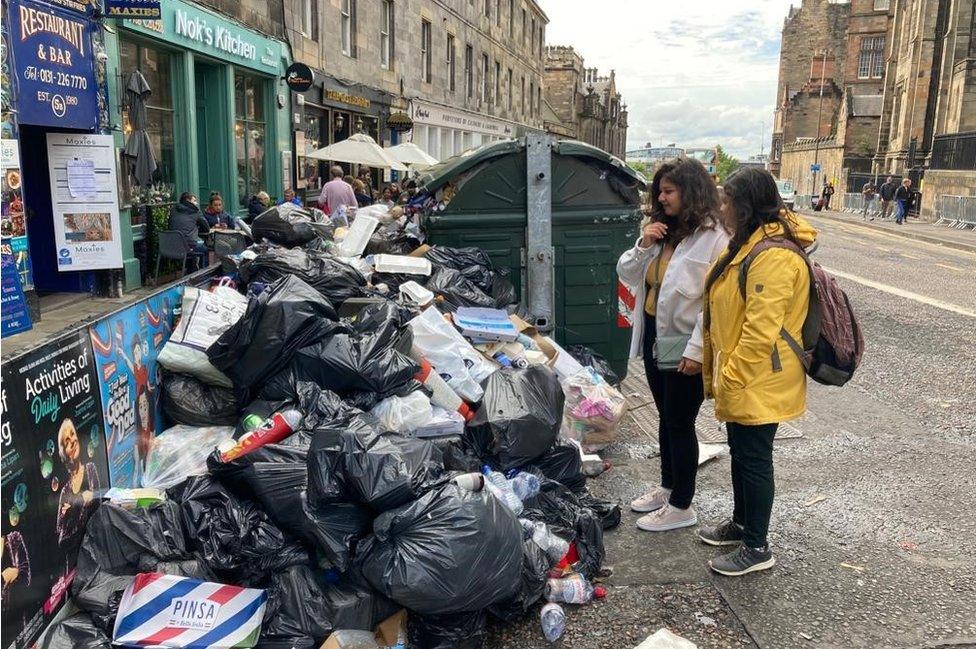
Waste in Edinburgh has been piling up since workers began their strike
Bin strikes across a further 13 Scottish local authorities are under way despite a new pay offer being made.
Trade unions queried a previous offer of a 5% uplift, saying they needed more detail about how it would impact the lowest paid members.
Cosla, the body representing local government, said its offer meant the lowest paid 12% council workers will get more than a 5% increase.
But three unions are calling for more funding from the Scottish government.
Deputy First Minister John Swinney said £140m of new money had already been allocated to the local government pay settlement.
Mr Swinney met with union officials on Thursday evening which Unison described as "detailed constructive talks" but no further offer was made.
He told BBC Scotland: "I think it would be helpful if local authorities leaders had made the offer of 5% much earlier than they did, when I gave them the money.
"But Labour and Conservative leaders in Cosla stalled on giving that offer to trade unions."
Mr Swinney said the Scottish government had looked within a fixed budget and made hard choices to provide the funds.
John Swinney says councils should contribute more funds to resolve an ongoing pay dispute which has led to bin workers striking
He added it was important the "proper negotiation machinery" between local authorities and unions took its course.
Mr Swinney said: "I'd encourage all parties to get round the table, including local authority leaders, to resolve these issues.
"We're in an unacceptable situation just now, particularly in the City of Edinburgh with conditions round about the waste in the city so it's important these issues are resolved."
Colsa resources spokeswoman, councillor Katie Hagmann, said: "The reality of this new offer is that the lowest paid 12% of our workforce will get more than a 5% increase, meaning that those on the Scottish Local Government Living Wage will see an overall 7.36% increase.
"This amounts to one of, if not the best offer in decades for Scottish local government workers during some of the most trying times for councils to continue to deliver the everyday essential services that our communities rely on."
The strikes follow similar industrial action by refuse workers in Edinburgh, which started on 18 August.
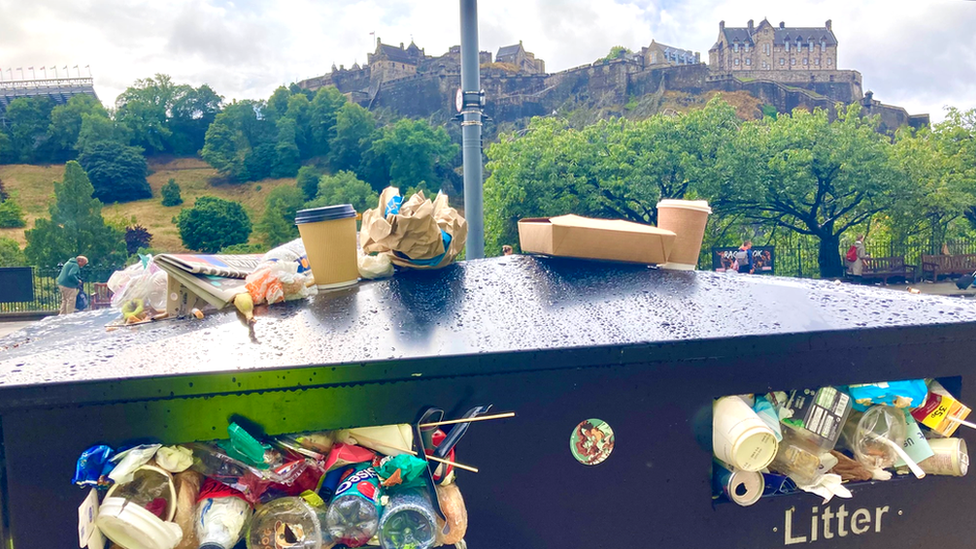
Edinburgh Castle provides the backdrop as rubbish piles up in nearby streets
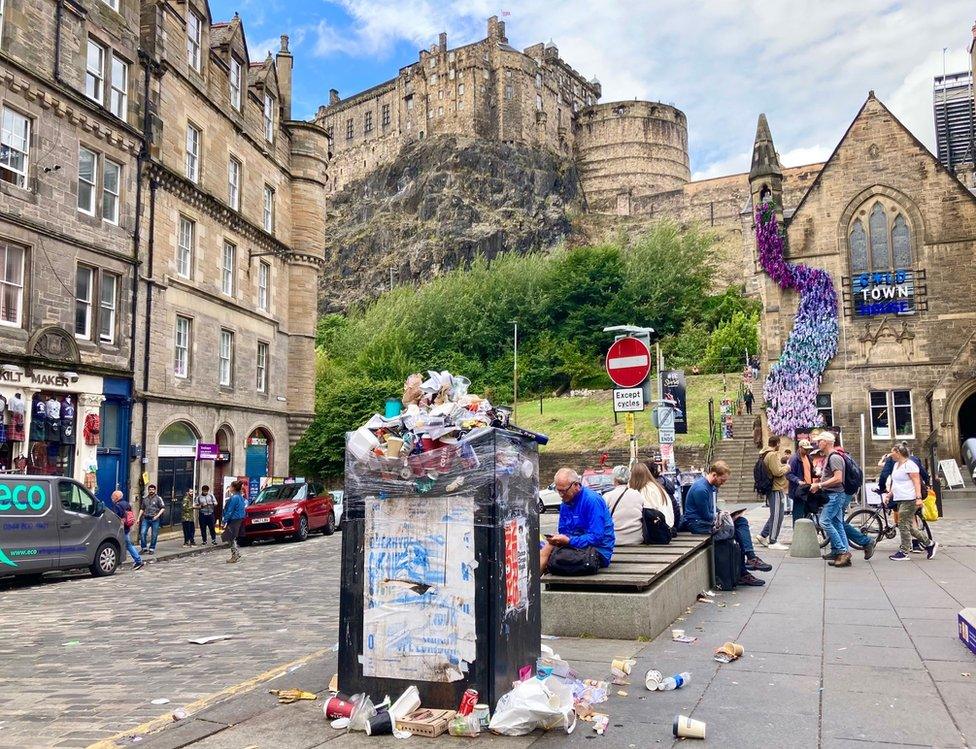
Johanna Baxter, Unison Scotland's head of local government, said the union was "a long way" from agreement.
She said: "Cosla negotiated within the cost envelope that leaders mandated them but that simply isn't enough and goes nowhere near matching the pay offer provided to council workers in England, Wales and Northern Ireland.
Speaking after the talks with Mr Swinney, she added: "We welcome that he listened to Unison concerns and was keen to explore how he could support getting council pay talks pay back on track.
"We were clear that we need to rethink not only the construction of the pay offer, so that those on the lowest incomes are fairly treated, we also need to explore ways in which we can increase the overall cash available to come to a fair offer."
Government talks
Wendy Dunsmore, industrial officer at the Unite union, said Mr Swinney had said he would now "engage Cosla on a mechanism which could facilitate funding but that this would not come directly from the Scottish government".
She added that the trade unions now want the Scottish government to "directly engage" in the negotiations with Cosla.
The current offer means that the lowest paid council workers be taken to a new Scottish Local Government Living Wage of £10.50.
Unite said that for more than half of local government workers, Cosla's offer represented an offer of between £900 to £1,250 when the UK government is offering council workers in England a £1,925 flat rate pay offer.

Bins on Princes Street have overflowed as the Edinburgh Festival Fringe continues in the city
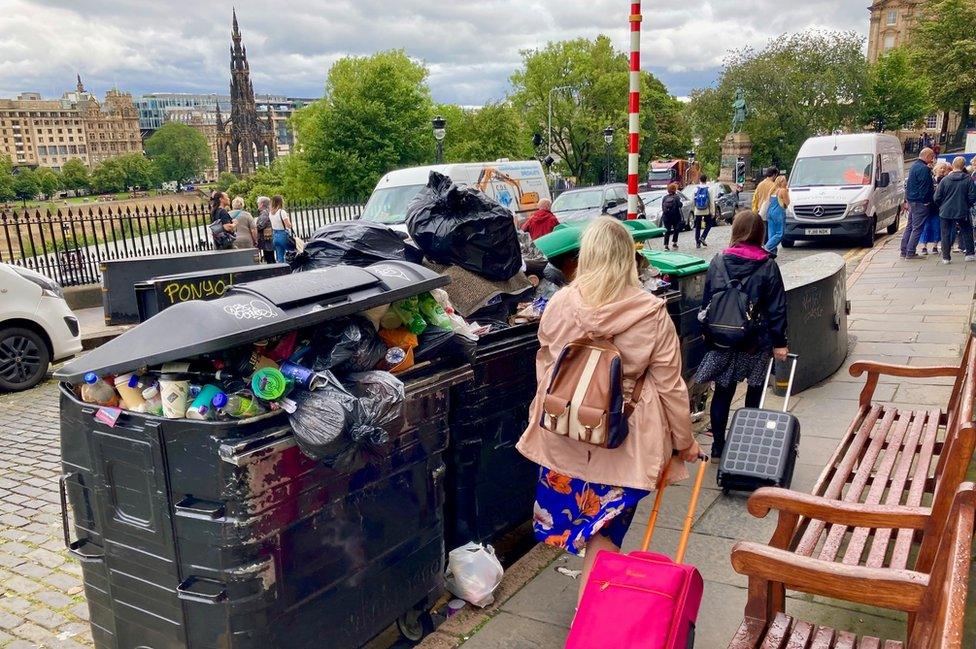
Tourists walk pass overflowing bins in Edinburgh
Unite industrial officer Wendy Dunsmore warned the dispute could cause "months of disruption".
She said: "It's a sad indictment that council workers in Scotland are being offered substantially less than their counterparts in England.
"The cold hard reality is that inflation and energy costs are soaring - and they are predicted to rise even higher. The 5% today will not be worth the same in a matter of months when the cost of living crisis will bite even harder.
"The offer on the table just doesn't help the lowest paid make ends meet."
GMB Scotland senior organiser Keir Greenaway said: "The fact that Cosla couldn't even commit to the basic principle of a flat rate offer which would help the lowest paid is bitterly disappointing and frankly shameful.
"Our members are angry about the lack of value being shown to them by political leaders and scared about the prospect of pay that doesn't confront a cost of living crisis that's getting worse by the week."
Local authorities had initially proposed a 3.5% increase before upping their offer to 5%, with the minimum hourly rate also to be raised to £10.50.
Members from the Unite and GMB unions are also involved in the pay dispute. Cosla said it hoped they would consult with their members on the fresh offer.
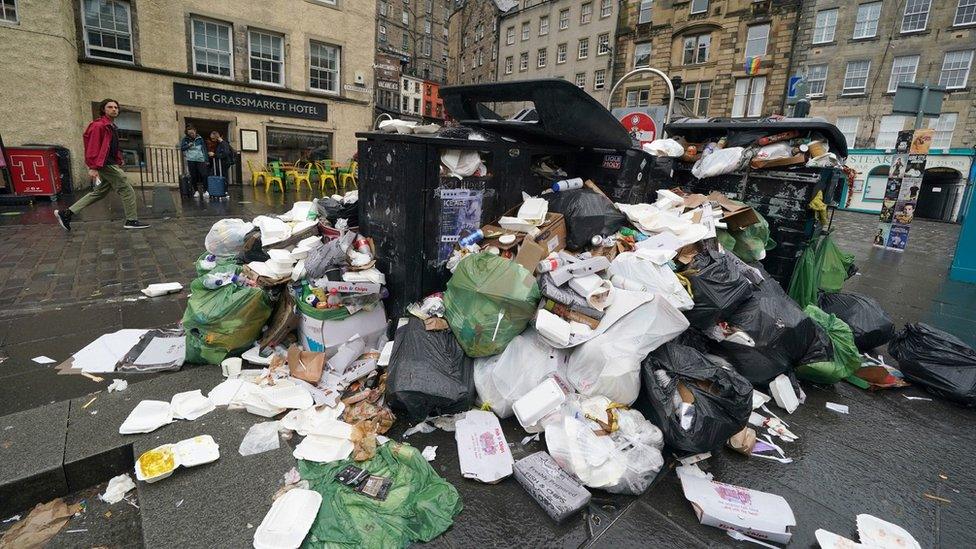
Overflowing rubbish bins in the Grassmarket area of Edinburgh
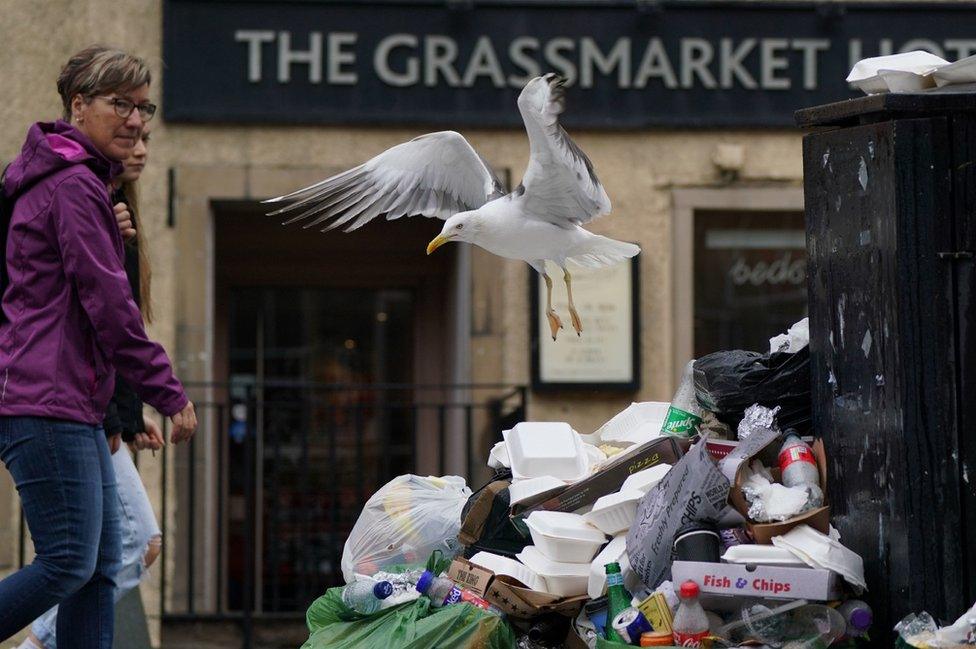
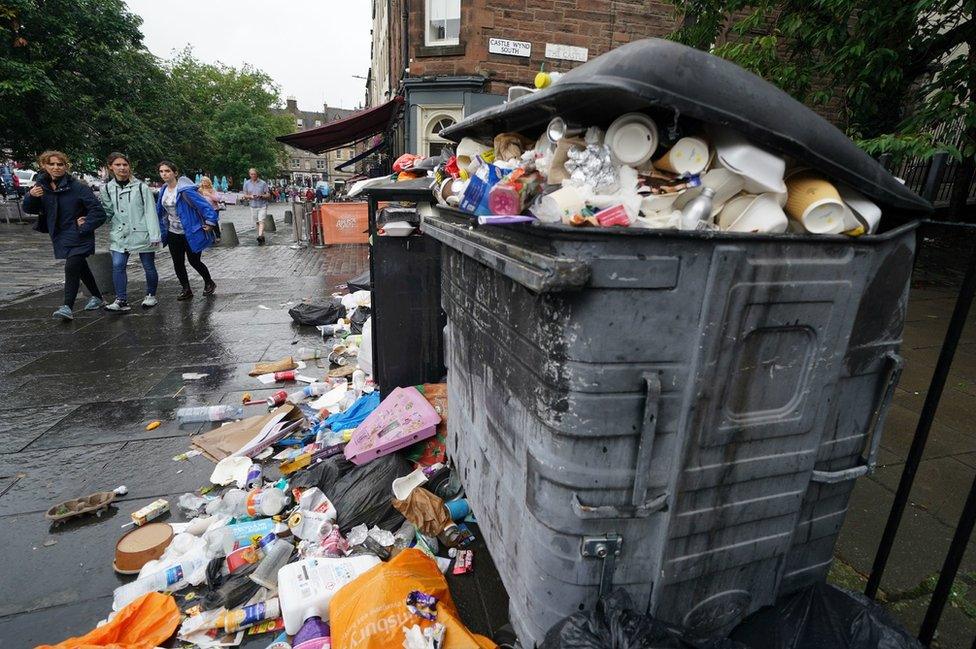
Hundreds of GMB and Unite union members in Edinburgh's waste and recycling service have already begun a strike which was planned to last until 30 August.
School and nursery staff in nine Scottish council areas are also to go on strike for three days next month in the same pay row.
Unison said a total of 13,000 members would be involved.
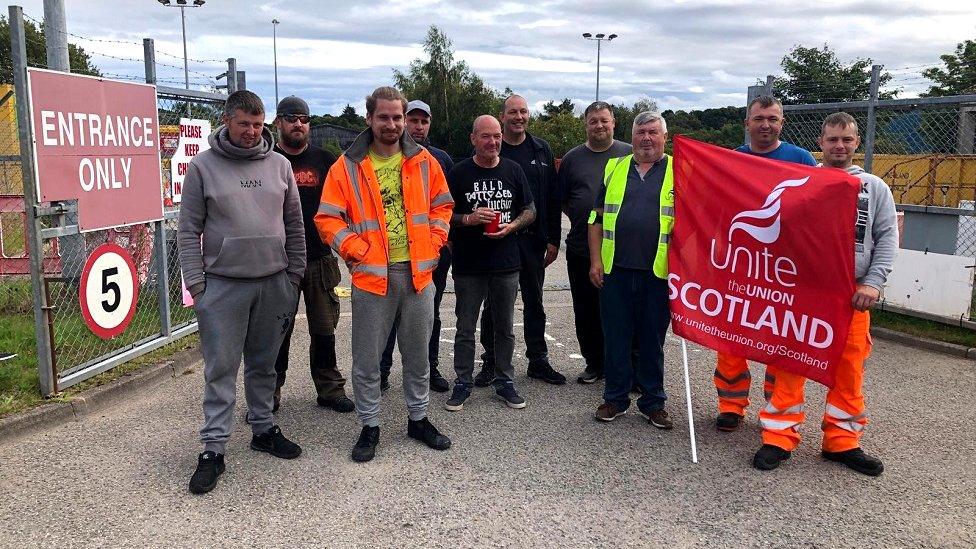
Unite members formed a picket line outside a recycling centre in Alness in the Higlands
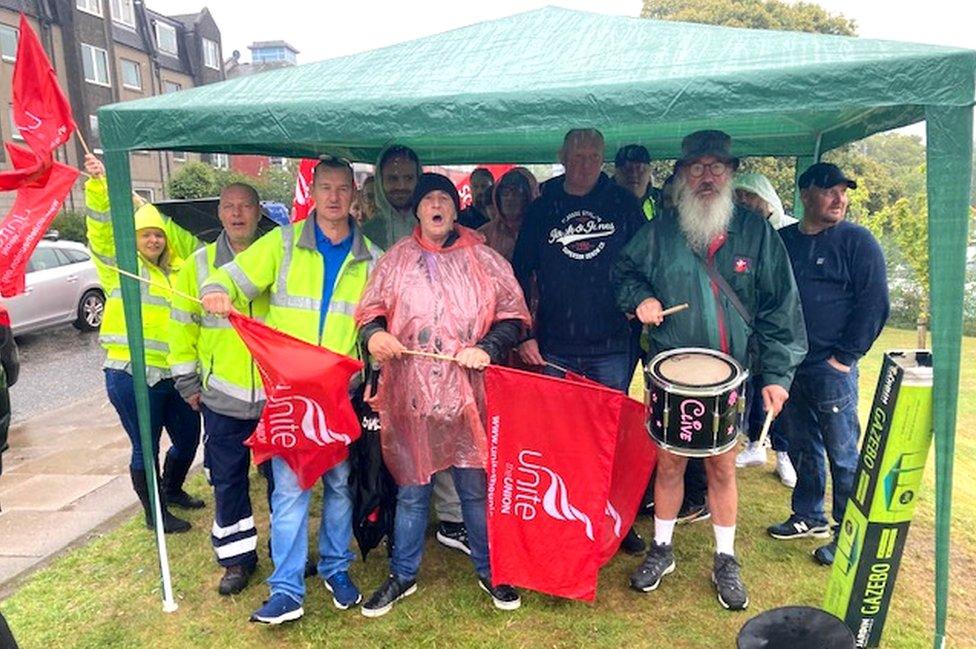
Aberdeen City Council workers demonstrated outside council buildings
It will see schools, early years centres and nurseries disrupted in Aberdeenshire, Clackmannanshire, East Renfrewshire, Glasgow City, Inverclyde, Orkney, North Lanarkshire, South Lanarkshire and Stirling.
The unions represent workers including school catering staff, cleaners, caretakers, teaching assistants and early years practitioners.


This is a national industrial dispute about council pay across Scotland - not a local dispute with individual councils.
Today marks a significant escalation of the action. Bin workers and recycling staff are now on strike at 14 councils across Scotland.
More will join them on Friday. Then in a fortnight, non-teaching staff in schools and nursery workers will go on strike too.
The council unions note that the pay offer is still well below the offer made to council workers in the rest of the UK. They have been offered a flat rate rise of £1,925 each.
But it may be hard to significantly improve on the current offer.
Councils argue they have already had to identify more savings or dig into reserves to offer 5% - even with the extra £140m they were given by the Scottish government to support an improved pay deal.
It is hard to see how they can offer more unless they get more Scottish government cash. Some councils are in a healthier financial position than others but the pay rise has to be affordable to all of them.
The Scottish government, in turn, argues that it has had to make hard choices to give councils that extra £140m.
But without an improved pay offer, strike action is set to continue and intensify.

Is there a bin strike in my area?
Refuse workers in Edinburgh began industrial action on 18 August. Bin collectors from 13 other councils began their strike on 24 August:
Aberdeen
Angus
Dundee
East Ayrshire
East Renfrewshire
Edinburgh
Falkirk
Glasgow
Highland
Inverclyde
South Ayrshire
South Lanarkshire
West Lothian
East Lothian expect domestic bin collections to continue despite strike action because of the number of workers involved.
From 26 August, a further six councils will see workers join the action:
Aberdeenshire
North Lanarkshire
Stirling
Midlothian
Orkney
Perth and Kinross
Where are school and nursery staff set to strike?

School catering staff are among those due to take strike action
Industrial action by staff in schools, nurseries and early years' centres in nine council areas are scheduled to walk out on 6, 7 and 8 September:
Aberdeenshire
Clackmannanshire
East Renfrewshire
Glasgow City
Inverclyde
Orkney
North Lanarkshire
Stirling
South Lanarkshire
Related topics
- Published19 August 2022
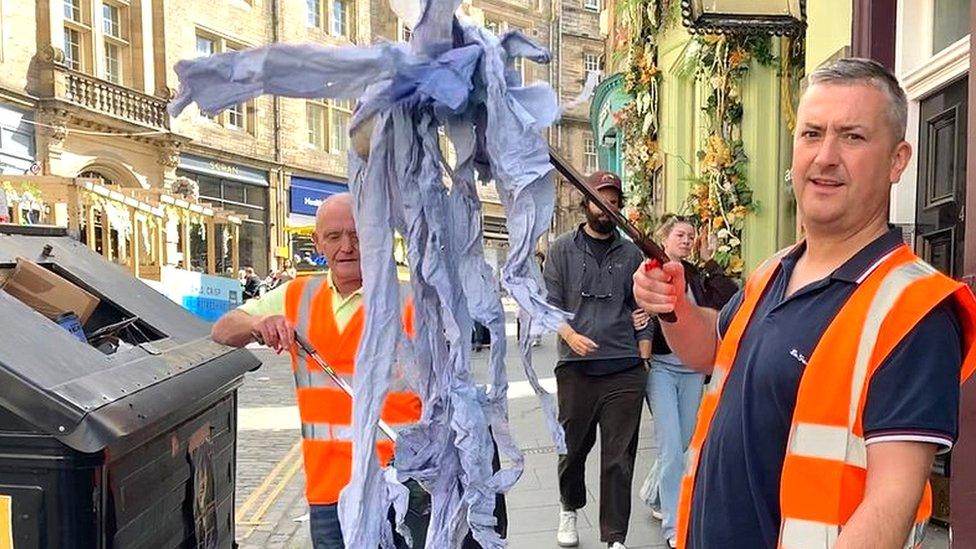
- Published22 August 2022
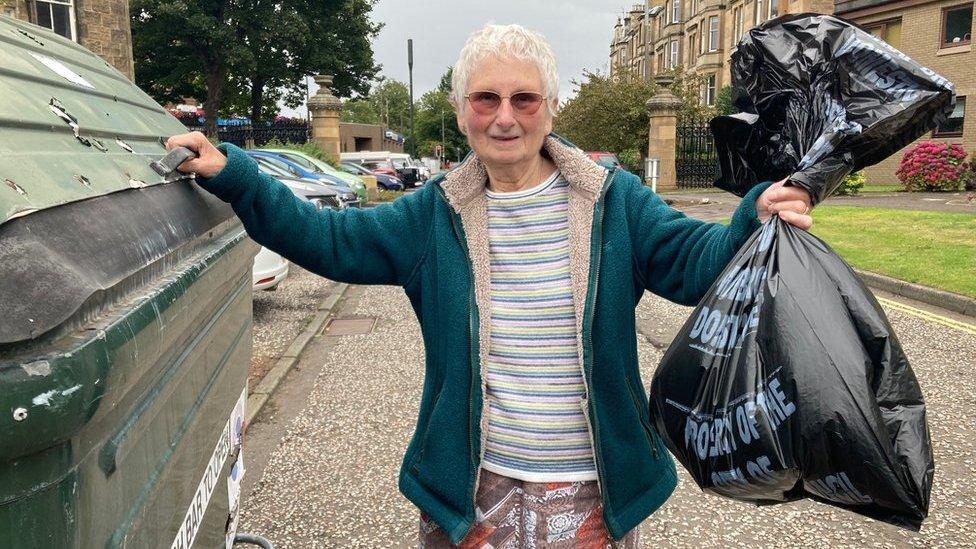
- Published18 August 2022
